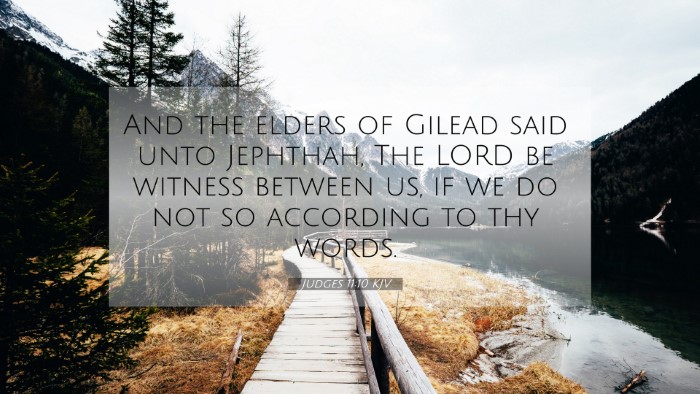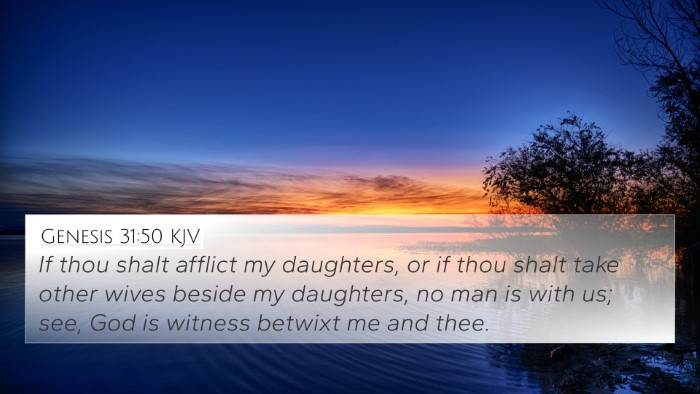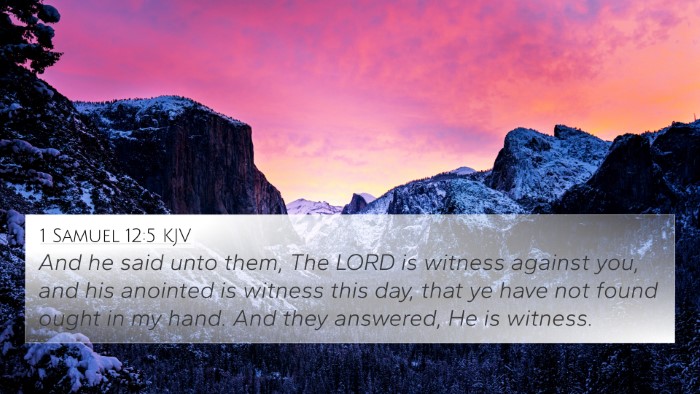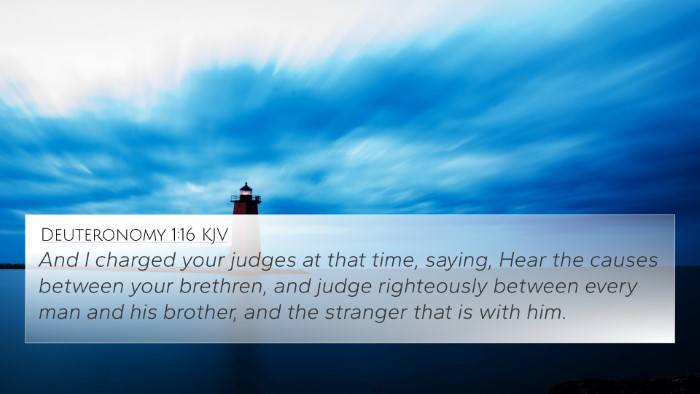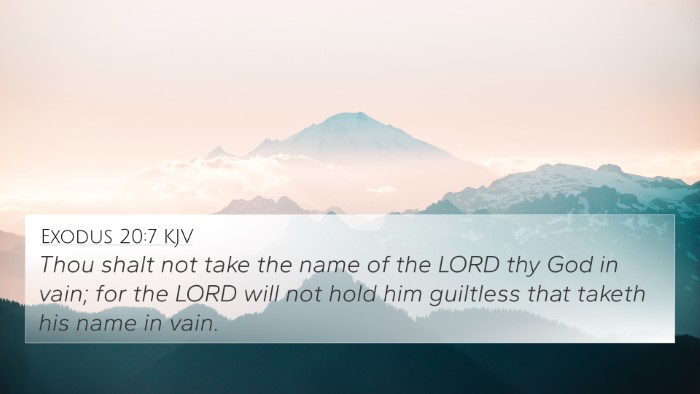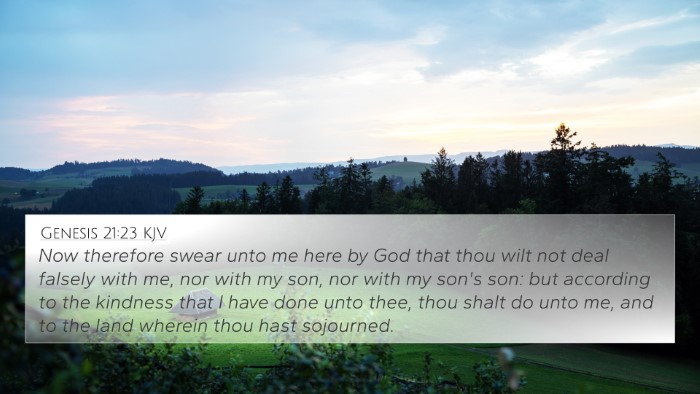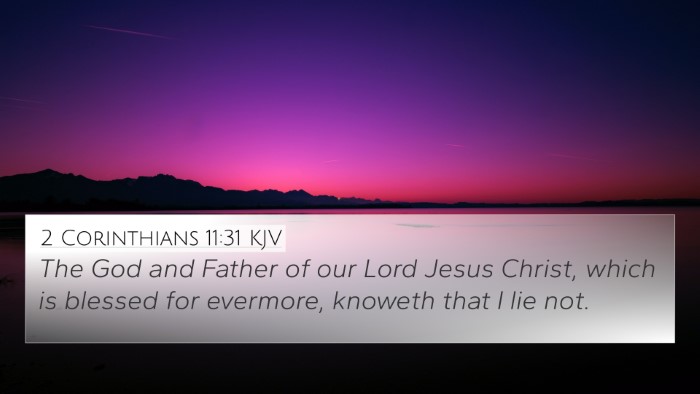Understanding Judges 11:10
Verse: "And the elders of Gilead said unto Jephthah, The Lord be witness between us, if we do not so according to your words." (Judges 11:10)
Summary of Meaning
Judges 11:10 depicts a significant moment of commitment and accountability. In this verse, the elders of Gilead are making a solemn promise to Jephthah, underscoring the importance of their agreement and invoking the Lord as a witness. This illustrates the covenantal nature of their relationship and the seriousness of their intention to follow through on their words.
Insights from Commentaries
Matthew Henry's Commentary
Matthew Henry emphasizes the gravity of the elders' declaration. He notes that by calling upon God as a witness, they were not only affirming their commitment but also acknowledging God's sovereignty in their dealings. This conveys the theological understanding that God's presence is paramount in human agreements and that any breach of this covenant would have serious moral implications.
Albert Barnes' Notes on the Bible
Albert Barnes remarks on the nature of the leadership being offered to Jephthah. He points out that the elders' words indicate their recognition of Jephthah's suitability for leadership due to his valor and earlier rejection. The invocation of the Lord serves to reinforce the legitimacy of their promise and the authority by which they operate. This connection highlights the importance of divine witness in matters of leadership and authority.
Adam Clarke's Commentary
Adam Clarke discusses the cultural and historical context surrounding Jephthah’s leadership and the elders' promise. He suggests that the elders were desperate for a successful military leader to save them from oppression and recognized Jephthah’s potential despite his past. The commitment sealed with God as a witness reflects the deep-seated belief in divine oversight in the affairs of men, especially during critical moments.
Biblical Context and Cross-References
This verse is part of a narrative that explores themes of leadership, faithfulness, and divine justice. Below are some significant cross-references that resonate with the themes present in Judges 11:10:
- 1 Samuel 12:5: "And he said unto them, The Lord is witness against you, and his anointed is witness this day, that ye have not found ought in me." This verse reflects the theme of accountability before God.
- Deuteronomy 19:15: "One witness shall not rise up against a man for any iniquity, or for any sin, in any sin that he sinneth: at the mouth of two witnesses, or at the mouth of three witnesses, shall the matter be established." This verse underscores the need for witness in agreements.
- Psalms 50:4: "He shall call to the heavens from above, and to the earth, that he may judge his people." This verse affirms God’s role as a witness and judge.
- Matthew 18:20: "For where two or three are gathered together in my name, there am I in the midst of them." Here, the promise of God's presence emphasizes the sanctity of communal agreements.
- Hebrews 6:16: "For men verily swear by the greater: and an oath for confirmation is to them an end of all strife." This verse reflects the cultural practice of making oaths, similar to the elders' commitment in Judges.
- James 5:12: "But above all things, my brethren, swear not, neither by heaven, neither by the earth, neither by any other oath: but let your yea be yea; and your nay, nay; lest ye fall into condemnation." This highlights the importance of integrity in promises.
- Exodus 20:7: "Thou shalt not take the name of the Lord thy God in vain; for the Lord will not hold him guiltless that taketh his name in vain." This addresses the seriousness of invoking God's name in oaths.
- Proverbs 10:9: "He that walketh uprightly walketh surely: but he that perverteth his ways shall be known." This relates to the integrity required in leadership and vows.
- Acts 1:24: "And they prayed, and said, Thou, Lord, which knowest the hearts of all men, shew whether of these two thou hast chosen." This emphasizes seeking divine guidance in leadership choices.
- Romans 12:1: "I beseech you therefore, brethren, by the mercies of God, that ye present your bodies a living sacrifice, holy, acceptable unto God, which is your reasonable service." Although not directly related, it touches on the theme of commitment to God’s service.
Thematic Analysis
The themes present in Judges 11:10—leadership, covenant, and accountability—are prevalent throughout the Scriptures. These themes provide a rich tapestry for understanding how God interacts with His people and the importance of integrity in human agreements. The verse reflects an inter-Biblical dialogue that demonstrates how past covenants inform the faith and practices of future generations. Biblical cross-referencing reveals deeper meanings and encourages a comprehensive study of the Scriptures.
How to Cross-Reference in Your Bible Study
To understand the connections between Bible verses effectively, the following tools and methods can be utilized:
- Bible Concordance: This resource allows you to find verses related to specific keywords and themes.
- Bible Cross-Reference Guide: Such guides provide lists of verses that are related to one another across different books of the Bible.
- Cross-Reference Bible Study: Engaging in this type of study helps uncover thematic connections and enhances understanding.
- Tools for Bible Cross-Referencing: Digital tools and apps often provide built-in cross-referencing features for easier study.
- Identifying Connections Between Testaments: It is beneficial to recognize how themes and teachings from the Old Testament are echoed or fulfilled in the New Testament.
- Bible Chain References: Following a chain reference can lead you from one verse to related passages, building a comprehensive understanding of a specific topic.
Conclusion
Judges 11:10 serves as a poignant reminder of the importance of oaths and the presence of God in our declarations. By understanding this verse within its broader scriptural context and linking its themes to other scriptures, we can gain a deeper appreciation of God’s character and the integrity expected of His followers. Leveraging cross-references provides a means of exploring the connectedness of Scripture, enriching our study and application of God's word in our lives.


